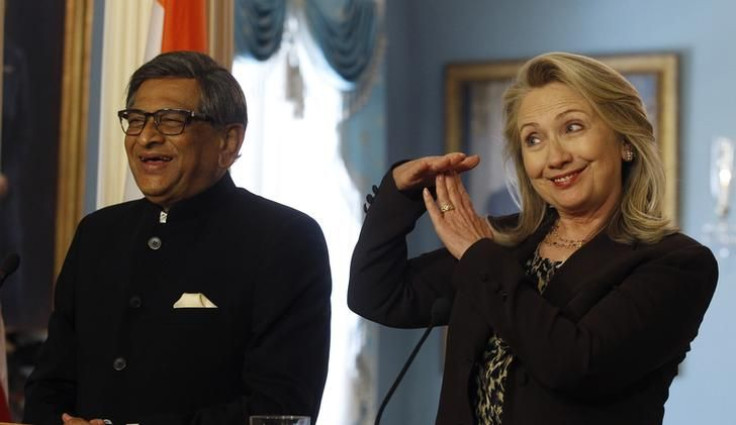Hillary Clinton Tops Obama, Biden In New National Poll

Although former U.S. Secretary of State Hillary Clinton has not yet announced her plans for the next few years, many people are speculating she will run for president in 2016.
And if her new poll numbers are any indication, she should have no trouble securing that position.
Clinton is polling better than either President Barack Obama or Vice President Joe Biden at the moment, according to a Quinnipiac University national poll released Friday. In fact, Clinton is the most popular national politician in America at this time.
In a survey of 1,772 registered voters conducted Jan. 30-Feb. 4, voters approved of Clinton by a margin of 61-34 percent. Clinton polled higher than any other political figure, including John Kerry, her successor as secretary of state; Speaker of the House of Representatives John Boehner, R-Ohio; and Rep. Paul Ryan, R-Wis.
"Hillary Clinton ends her term as secretary of state and the bruising inquiry into the Benghazi murders as easily the most popular actor on the American political stage today," said Peter A. Brown, the assistant director of the Quinnipiac University Polling Institute.
At the same time Clinton was viewed favorably by 61 percent of poll respondents, her fellow Democrat Obama’s favorability rating was just 51 percent, and fellow Dem Biden's was only 46 percent.
And Clinton appears infinitely more popular than Republican legislators: Ryan’s favorability rating was 34 percent, and Boehner's was 20 percent.
So what exactly makes Clinton a more popular figure than Obama?
"The difference in favorability ratings for the two leaders lies in Clinton's ability to win thumbs-up from many more independent voters and Republicans than does the president," said Brown. "The lower approval numbers for the president could be because once the election afterglow is gone, governing inevitably requires decisions that make some voters unhappy."
© Copyright IBTimes 2024. All rights reserved.












